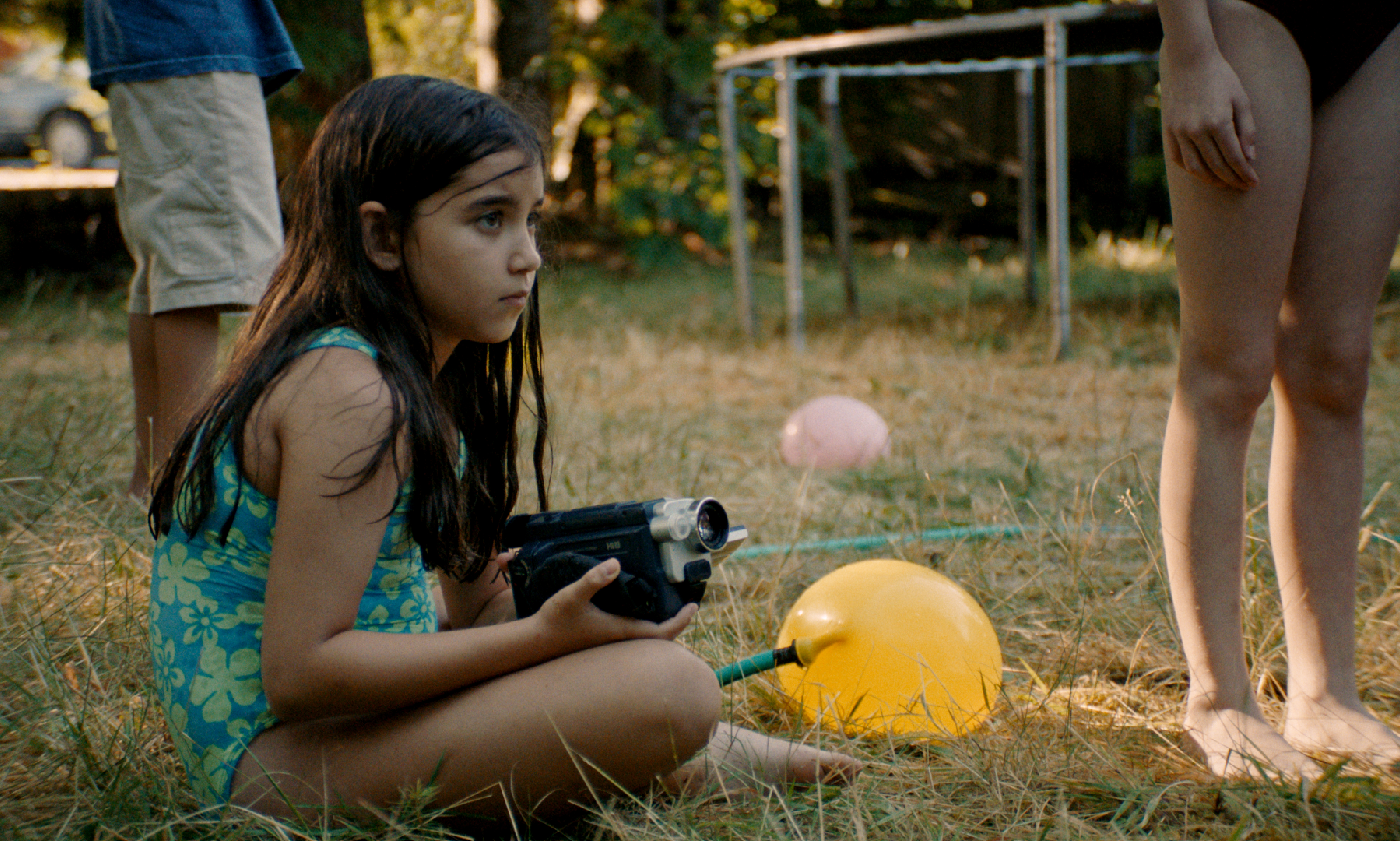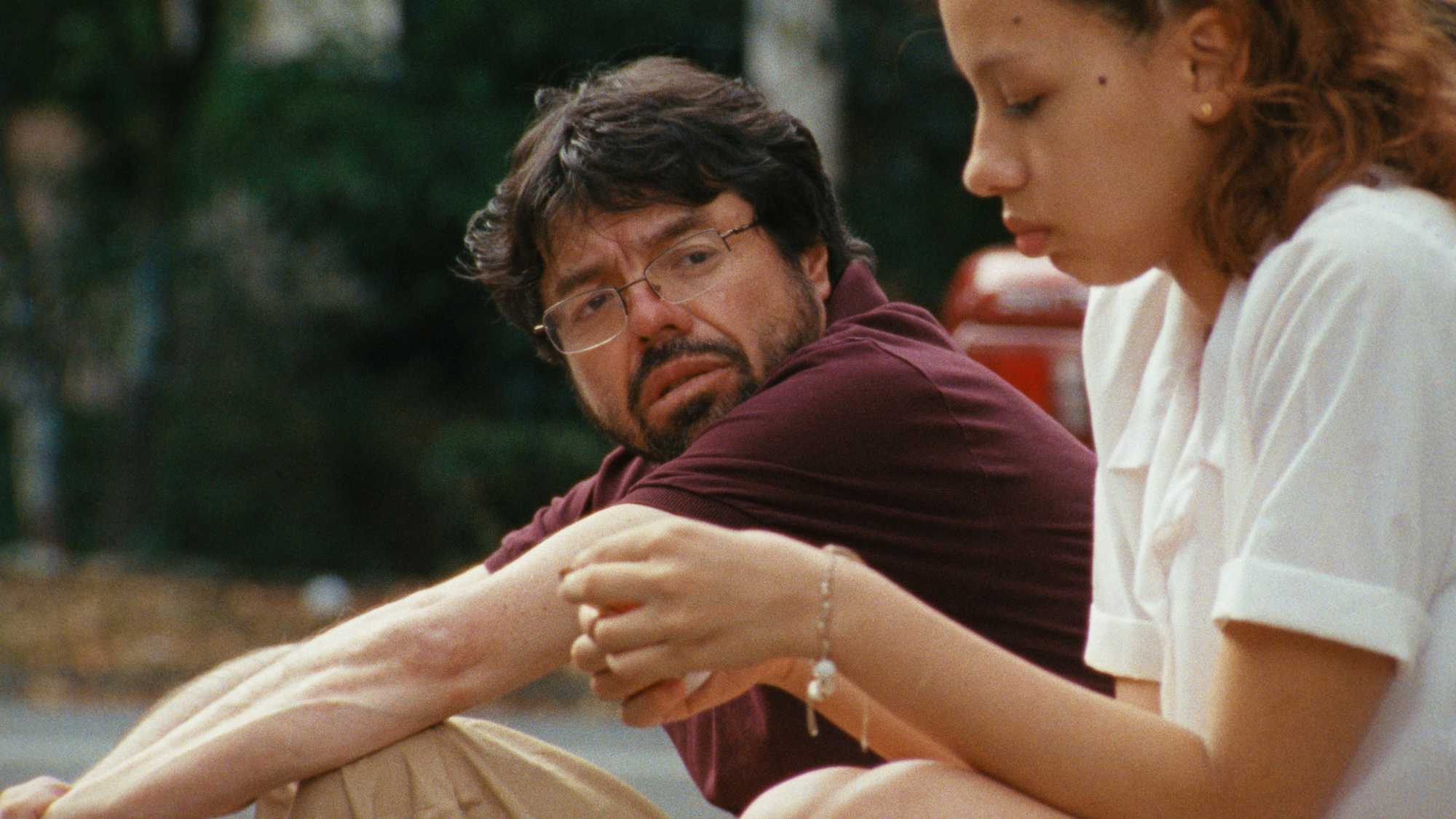VIFF Digest: Part 3
Blue Heron
Fresh off a buzzy reception at this year's Locarno Film Festival, Sophy Romvari's feature debut in Blue Heron was atop the list of films I wanted to catch at VIFF. Luckily I was able to subject myself to the crushing emotional toll of Romvari's gutting film, while also appreciating the sheer craft and beauty laced within it. Based on her own life experiences, Blue Heron follows a family freshly moving into a new home on Vancouver Island. The narrative is mostly from the perspective of the youngest daughter Sasha (Eylul Guven), an assumed reflection for Romvari's younger self, who has just moved into a new Vancouver home along with her parents (Iringó Réti and Ádám Tompa), and three siblings including her older half-brother Jeremy (Edik Beddoes). Sporting a free flowing narrative bereft of much structure, Romvari's storytelling feels incredibly natural, especially when seen through the lens of Sasha's childhood. It feels as free-spirited as a kid's life should be, without stress or planning. The textured sound design places us directly in Sasha's shoes as she helps her mother cook, plays with her friends, or enjoys the beach with her family, providing a sensory aesthetic that's sharp and emphasizes the focus on Sasha.
But as Jeremy's behavior gets increasingly erratic, forcing Sasha's parents to visit child psychologists or social services, it's clear there's a darker side to Sasha's childhood. Much of Romvari's meditation on childhood trauma is in the memories we make, or think we make, often reflecting on the occurrences later in life and realizing it wasn't quite what we thought it was. A few innocent conversations between Sasha and her mother on Jeremy's behavior, Sasha of course doesn't see anything wrong with Jeremy's incidents in the beginning, highlight the less-than-wary sibling bond even in the midst of chaotic episodes. To put it simply, Romvari is in absolute command of her film, using every tool possible to fine-tune a directorial approach that is as seamless as it is intriguing. Her invocation of a The Fablemans moment where Sasha is inadvertantly given the family videocamera, filming Jeremy as he's brought home handcuffed by the police, is a stunning display of surehandedness behind the actual camera. Romvari's ability to weave in a tremendously personal narrative, along with an older version of Sasha (Amy Zimmer) reflecting on the choices her parents made while bridging the past and present-she visits her family home with the younger versions of herself and siblings present-is a complete gut-punch. By the time the finale closes, I was not only wiping tears from my eyes, feeling the ache of what ifs and parental powerlessness, but I was also completely blown away by Romvari's debut. A mix of biographical fiction can be a tall order, not to mention she even blends a documentary style in as well, but Romvari meets and absolutely exceeds the task. Blue Heron was by far the best film I saw at VIFF this year and I cannot wait to see what Romvari does next.
A Poet
Built as an absurdist comedy/drama, Simón Mesa Soto's A Poet is meant to frustrate. Ubeimar Rios' protagonist, Oscar Restrepo, a burnt out poet who spends his days getting drunk and bemoaning his lack of literary notoriety, is the main culprit behind this antagonization. From asking his estranged daughter for money to pouring liquor into his coffee before going to his teaching job, it's readily apparent that Restrepo is a definitive failure. But when he meets Yurlady (Rebeca Andrade) in his class, her notebook filled with poetry moves him to take her under his dusty wings and feed her reluctant love of poetry. Even when Restrepo is making decisions that should enamor the audience to him, Soto's story effectively keeps him in the shadows while the light of success shines on others. Rios does an incredible job capturing the complex emotions of Restrepo's tortured poet. Oscillating between crippling sadness, alcohol inspired anger, or the exhaustion of living on the fringes in a once successful career, Rios' role is captivating. Yet A Poet isn't exactly a happy story, even if it is outrageously hilarious at times given Restrepo's buffoonish actions, but it's highlighting of the most marginalized people being taken advantage of is quite sharp. Restrepo and his more successful colleague getting into a literal dick measuring contest over poetry and bringing up the next wave of talent, with Yurlady and Restrepo's daughter bearing the brunt of the consequences is incredibly well done in both story and direction.
When Soto's film is at its best when moving through Restrepo's attempted moral comeback. The ups and downs, along with sideways stumbles, are entertaining and feed into the absurdist portrayal of a failed poet trying to achieve something worthwhile. However, A Poet tends to spin its own wheels a bit, overplaying its hand on the latter moments of absurdity. Yurlady's brother attacking Restrepo after a celebration goes awry, or even Yurlady's apology video feel overwrought with tonal shifts that undercut the taut storytelling that Soto had thus far. As the film unravels in the third act, a sprawling back-and-forth between Restrepo, his daughter, and Yurlady proves to be thematically tight as a sort of redemption, but it takes too long and slows the pace far below a threshold I was hoping for. Ultimately making A Poet an uneven film that definitely holds a fantastic film within itself, but was lost without sharper editing and a more concrete third act.












